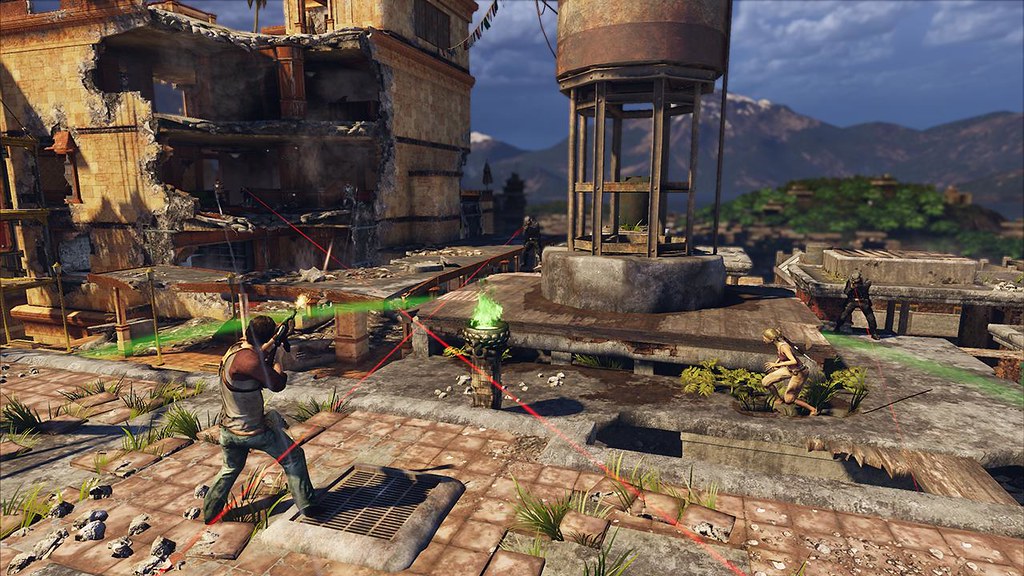
Immerse yourself in the world of strategy games, where every decision counts and the thrill of victory hinges on the perfect plan. These games, beloved by millions worldwide, offer an exciting blend of critical thinking, tactical prowess, and immersive storytelling.
Whether you’re a seasoned veteran or a newcomer looking to dip your toes into the genre, you’ll find that strategy games offer a unique gaming experience unlike any other. They challenge your mind, test your patience, and reward your strategic thinking.
The Allure of Strategy Games
The attraction of strategy games lies predominantly in their interactive complexity and cerebral nature. Combining pieces of history, politics, and warfare, these games engage players on a visceral level. They offer participants the chance to confront complex situations, devise strategic solutions, and follow through with tactical execution without the real-world repercussions. Given the global popularity of strategy games, it’s apparent that a large number of gaming enthusiasts appreciate these challenges.
The appeal of these games becomes evident once players explore the myriad different aspects that these games encompass. For instance, games like Chess, Go, and Risk, let players experience the thrill of strategic warfare. Victory is sweet but conditional on the effective execution of well-crafted strategies. If one’s planning skills fall short, defeat awaits.
Moreover, strategy games often involve intense mental effort and require players to aim for long-term successes, ignoring short-term gains. Games such as Crusader Kings II or Civilization series, require players to manage resources, balance economic growth with military expansion, and navigate diplomatic ties. It’s the complicated decision-making, the suspenseful anticipation, and the riveting unpredictability that set these games apart.

In addition, strategy games offer a profound sense of accomplishment. The joy a player feels when their intricate plan smoothly unfolds, overcoming all obstacles, is second to none. Games like StarCraft II or Age of Empires, emphasized this aspect, encouraging players to experiment with different strategies and revel in seeing their empire grow.
Lastly, the multiplayer aspect of strategy games further adds to their allure. Joining hands with allies, outsmarting opponents, defending territory, or launching attacks, all gain a new dimension when experienced with comrades or against real-life competitors.
All in all, the lure of strategy games resides in their unusual blend of cerebral stimulation, complex gameplay, emotional involvement, and the sweet satisfaction of victory achieved through strategic genius. This unique mix, often absent in other genres, explains why strategy games continue to attract millions of gamers worldwide.
Understanding Different Types of Strategy Games
Strategy games break into various types, each providing unique challenges and requiring distinctive strategic thinking. Determining these different types offers gamers an insight, bolstering their competitive edge.
First, Turn-Based Strategy (TBS) Games prime gamers for tactical calculations. They offer an allowance for time-intensive decisions, signifying a break between turns. Renowned games such as Chess and Civilization exemplify this category, demanding deliberate planning and strategic foresight.
Second are the Real-Time Strategy (RTS) Games. Operating without the luxury of pauses between turns, these games necessitate swift decision-making steeped in strategy. StarCraft, as an example, is renowned for its challenging real-time gameplay, where every decision made impacts the unfolding of the game in real time.
Thirdly, we identify the Multiplayer Online Battle Arena (MOBA) Games. Predicated on a blend of RTS principles and role-playing features, these games facilitate team play in real time. Known games such as Dota 2 and League of Legends exist within this space, exhibiting an exhilarating mix of fast-paced gameplay and layered strategies.
Fourth category includes 4X Strategy Games, synonymous with “eXplore, eXpand, eXploit, and eXterminate”. Games in this category, like the legendary title Sid Meier’s Civilization, tend to emphasize on in-depth gameplay, long-term planning, and strategic resource management.

Lastly, there are Grand Strategy Games. Embedded within the context of world history, these games stake large-scale strategic planning against a backdrop of geopolitical intrigue. A paradigm of this category is Crusader Kings II, famous for the depth and complexity of its strategic gameplay.
Within these diverse strategy game types lies the beauty of this genre—it appeals to a variety of mental exercises, from tactical problem-solving to rapid decision-making, from meticulous planning to real-time response.
Top Strategy Games You Must Try
Originating from millennia-old classics, strategy games have evolved into an immersive, multi-genre world teeming with complexity. They exploit the human fondness for critical thinking, problem-solving, and anticipation of others’ maneuvers. Among the ample options available, some titles stand out, resonating with the global audience and influencers of the gaming community. Here are four strategy games you can’t afford to miss.
- StarCraft II: Blizzard Entertainment’s flagship Real-Time Strategy (RTS) game, StarCraft II, reigns supreme in the genre. Launched in 2010, StarCraft II enables players to orchestrate armies and manage resources in a science fiction universe, maneuvering against opponents in PvP or engaging in story-driven campaigns. Its intensely competitive gameplay inspired the beginning of esports, pushing the limits of strategic thinking and execution.
- Sid Meier’s Civilization VI: Building on a rich legacy, Civilization VI epitomizes 4X Strategy Games, where players eXplore, eXpand, eXploit, and eXterminate while guiding their civilization to global supremacy. Acknowledged for its complexity, adaptability, and depth, the series invites you to maneuver through historical tropes, managing aspects from urban planning to international diplomacy with flair.
- Dota 2: Valve’s Dota 2 exemplifies the Multiplayer Online Battle Arena (MOBA) strategy genre. Each player controls a unique character, called a “hero”, joining forces with their team to destroy the enemy base. Drawing millions of players with its deep strategic elements, intricate mechanics, and multiplayer collaborations, Dota 2 remains a high stake game in esports.
- Crusader Kings III: Paradox Interactive’s latest installment in the Grand Strategy genre presents a dynastic world of medieval politics, warfare, and intrigue. With a focus on character development, familial tensions, and diplomatic manipulation, Crusader Kings III offers an exciting blend of strategy and storytelling.
Dive into these immersive realms, witness the compelling blend of critical thinking, tactical skills, and engaging storytelling. Catering to varied gaming styles, these strategy games challenge and reward strategic thinking, offering unparalleled gaming experiences.
The Impact of Strategy Games on Cognitive Skills
Building on the captivating experiences outlined above, playing strategy games promotes undeniable cognitive growth and development. Strategy games, much like those analyzed previously, challenge players, honing their mental faculties.
Considering memory enhancement, strategy games, such as Civilization VI, necessitate remembering and incorporating detailed information. Players store and access various data points, including quest lines, tech trees, and diplomacy records. This regular use and recall of information aids in memory enhancement.
Assessing critical thinking, each player’s decisions, whether in StarCraft II or any complex strategy game, directly impact game turnout. Players make calculated risks, evaluating potential outcomes, and adapting strategies accordingly. The habitual practice of critical thinking during gameplay extends beyond the virtual world, improving this cognitive skill in real-world scenarios.
Delving into Multi-Tasking, games like Dota 2 involve extreme multi-tasking, engaging players to manage their hero, keep track of team’s locations, monitor enemy movements, and strategize attacks, often simultaneously. These tasks demand agile thinking and quick decision-making skills, enhancing a player’s ability to multitask effectively.

Respecting problem-solving, games like Crusader Kings III present a myriad of challenges and obstacles. Players must devise plans and execute strategies to overcome these hurdles, like managing the realm, strategizing wars, and navigating intricate networks of alliances. Such games offer myriad problem-solving opportunities, thereby helping to improve this cognitive skill.
Addressing spatial awareness, real-time strategy games, such as StarCraft II, engage players in recognizing the positioning and distancing of units in the game world. This necessitates an understanding of geometrical positioning and spatial relationships, enhancing spatial awareness.
